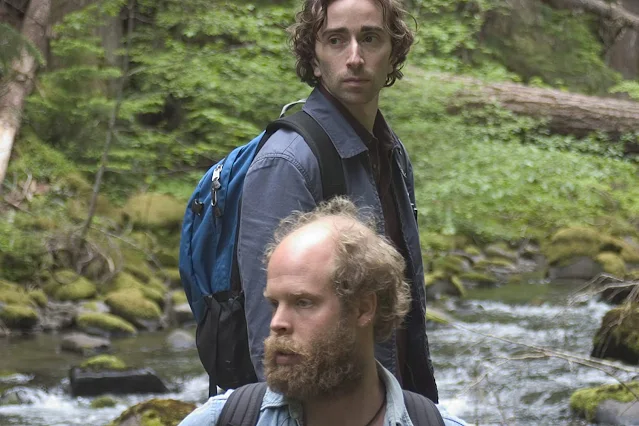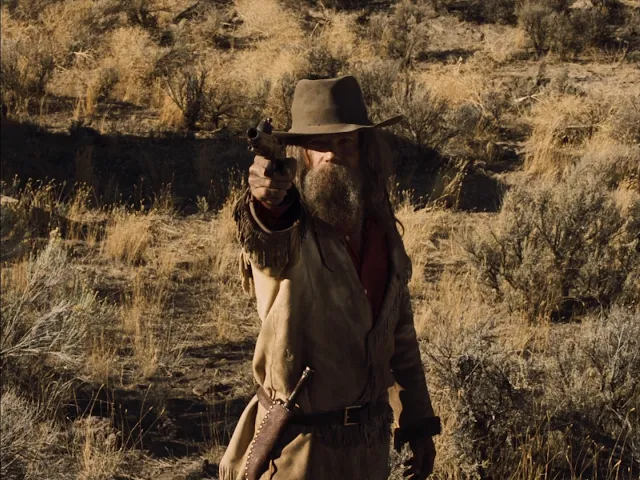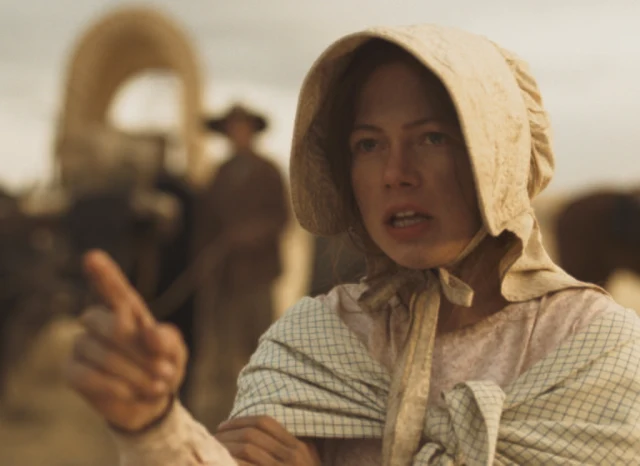 |
| Will Oldham and Daniel London in Old Joy |
Cast: Daniel London, Will Oldham, Tanya Smith, Robin Rosenberg, Keri Moran, Autumn Campbell, Steve Doughton, Matt McCormick, Darren Prolsen, Jillian Wiseneck. Screenplay: Jonathan Raymond, Kelly Reichardt. Cinematography: Peter Sillen. Film editing: Kelly Reichardt. Music: Yo La Tengo.
After watching Old Joy, I went to IMDb to check if I had ever seen Daniel London or Will Oldham in anything else. Turns out, I probably have: Both have done several movies and a lot of TV, but never anything else that forces them to hold the screen the way they do in Kelly Reichardt's film. Often, the very unfamiliarity of the "stars" of a movie is its greatest strength, allowing you to see the characters they play unfiltered through a previously established persona. No matter how effectively someone like Meryl Streep or Daniel Day-Lewis may transform themselves from film to film, you're still watching them act rather than be a character; you're conscious to some degree of what they've done before. The freshness of Old Joy lies in getting to know Mark (London) and Kurt (Oldham), to work out their backstories and speculate about their motives. If Mark and Kurt had been played by, let's say, Jake Gyllenhaal and Seth Rogen, we'd have different responses to the characters than we do. Old Joy is a movie without a plot: Mark gets a call from his old friend, Kurt, who wants to take him to a hot springs he has discovered in the Oregon backwoods. Mark feels obligated to check with his pregnant wife, Tanya (Tanya Smith), before setting out on this weekend adventure -- the slight tension in their conversation hints that Tanya doesn't quite trust Kurt, and that maybe Mark would be happy with an excuse not to go. But the two men, accompanied by Mark's dog, Lucy (played by Reichardt's own dog, Lucy, the "co-star" of her 2008 film Wendy and Lucy), set out for the weekend. They get lost on the way to the springs and spend the night camping out in a sort of dumping ground on a back road, but get their bearings in the morning and hike to their destination, an isolated spring in the middle of the forest with no one else around. Mark soaks blissfully in his hot tub, but Kurt is more unsettled, getting out to smoke some weed and to give Mark a shoulder rub. Then they return to the city, where at the end we see Kurt wandering restlessly at night. There are no feral mountain men to threaten the two, as in Deliverance (John Boorman, 1972), and no animal predators menace them -- any such tensions we supply from our own imaginations. What we are left with is a portrait of an aging, fraying friendship of two men who have gone different ways in their lives, so that at midlife Mark is settled and relatively prosperous (he drives a Volvo, that token vehicle of the middle class urban liberal), whereas Kurt is still feckless, rootless, and maybe intensely frustrated -- there are some hints that Kurt is sexually attracted to Mark. The past weighs on both of them: The film's title comes from a line spoken by Kurt, "Sorrow is nothing but worn-out joy." It's a film to be savored, to be recalled in the hours after you've watched it.










































